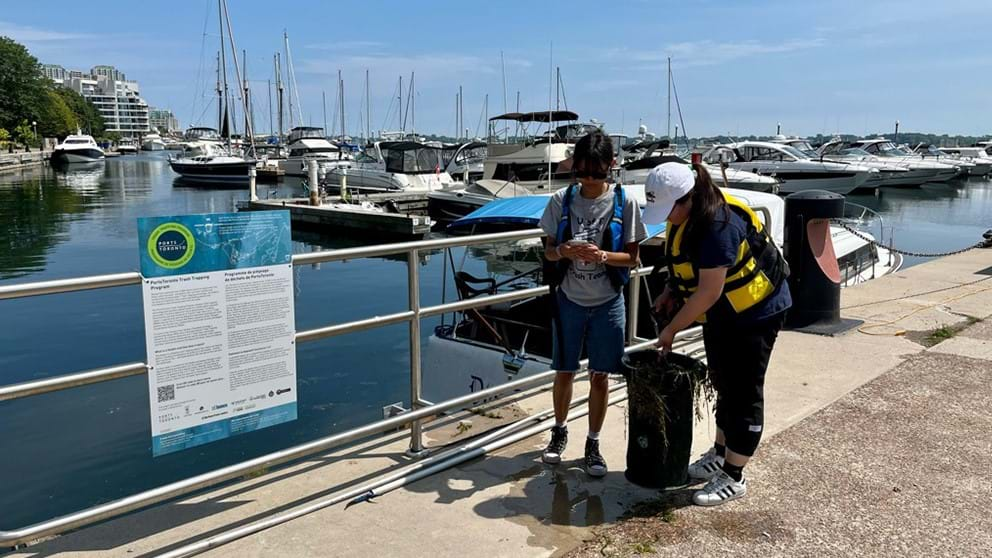
PortsToronto’s Seabins remove thousands of pieces of plastics in 2022
Over the course of four months, the network of 10 Seabins installed by PortsToronto in Toronto Harbour last year collected 92,891 pieces of plastic pollutants from the water.
The results of the 2022 Trash Capture Program have been related by PortsToronto in collaboration with the University of Toronto's Trash Team.
The most common type of debris among the 18 kilograms (almost 40 pounds) captured by the Seabins was microplastics less than five millimetres (under 1/4-inch) in size. Larger pieces of plastic were also found, such as plastic packaging, especially from food items, as well as cigarette butts and bottle caps.
A relatively newer pollutant also caught the attention of student researchers from the University of Toronto's Trash Team as one of the 10 largest types of waste trapped by the Seabin devices. These “fatbergs” described as "masses formed by a combination of fat, grease and wastewater materials, including wet wipes and diapers" serve as a reminder to avoid flushing all or part of such products.